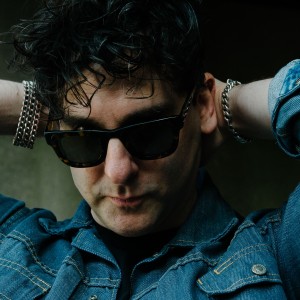Of all the international protests in the West over the Gaza war, many of them controversial--in my opinion many of them ill-informed--one which has caused more heartache and uproar than almost any other has been the Tricycle Cinema (also a famous fringe theatre in London) dropping the Jewish Film Festival. "Dropping?" The venue, and its artistic director Indhu Rubasingham, says no. They only required the JFF to give up its nominal funding from the Israeli embassy, and her theatre even offered to make up the difference.
Now I know people who know Ms. Rubasingham, and have heard very nice things about her and that she is a very positive force for the arts. But there are important gaps here between her perception, and what has actually transpired. If she really is unaware of those gaps, then she does not, I'm afraid, display the understanding of society that an artistic director needs.
Firstly, the Tricycle asked to view the festival's films for any objectionable content. They later admitted that this was censorship and dropped the request. Second, in asking the JFF to disassociate itself from Israel, Rubasingham was unfairly and unrealistically asking Jews to ignore a country that is central to Jewish self-identity. Israel is, whatever else it might be, the world's only Jewish state. There are 15 official Christian countries; in 2010, there were 49 countries with Muslim majorities. There are Hindu countries, Sikh countries. Jews get only one, and that was (re)formed out of centuries of persecution. Israel is mentioned in many Jewish prayers, songs and literary works.
So, Jews' understanding of self is rooted in Israel. They can be critical, by all means (many of the JFF's films do tend to be, with no censorship from the embassy), but those ties are deep and emotional and part of Jewish identity. Ask them to publicly cut those ties and the result would be, by part-definition, not a Jewish Film Festival.
Rubasingham has declared that she is not anti-Israel, she just wants to keep the Tricycle free of funding by warring governments. Quite apart from the U.K. government's funding (the Iraq and Afghanistan wars having killed far, far more civilians than anything seen in Israel--whatever one's political opinions of any of those conflicts), the Tricycle has never been known to blanche at accepting films, public meetings and theatre shows with funding from many other countries. One doesn't need to name them--we all know that many countries have been or are involved in tragic civilian deaths. I don't say that any or all of these were unjust wars, nor state an opinion of whether war itself is ever unavoidable. I simply point to a glaring inconsistency and the way it will be taken. Surely, surely, she must know this?
Which, in turn, brings us to the very point of theatre. Artists and arts events enjoy a high public profile. They are, by their nature, exhibitionist and thus get a lot of attention. Should they be politically active, in effect lobby groups, or should they be free and open spaces which welcome all kinds of debate and reflections of life and stimulate thought? You can't stimulate thought if people going in know that part of a discussion is already closed off.
The irony is, the Tricycle has a proud tradition of exactly the kind of political debate that theatre can do so well. Its dramatization of various court cases and government enquiries such as that on the Hutton Inquiry into the Iraq War, was often followed by debates in the theatre. I sat I on a rehearsal for that show, and the cast and director attacked their subject in an open spirit of, well, enquiry. They left their own political views at the door, and they set about investigating through their text. The goal was never to convey a ready-formed opinion, it was to earnestly present the facts and let the audience continue the argument. Shutting it down in advance is the opposite of what a theatre should be doing.
I suspect that the theatre just didn't want trouble, didn't want anti-Israel protests outside its doors. But the move seems to have rebounded--commentators on all sides of the British political spectrum have called the venues move misguided.
Two things are for sure: The U.K. Jewish community feels shocked at what they see as an attempt to force them to choose between their ancestral homeland and their home. And the Tricycle has now given itself quite a job, to never accept government funding from any country involved in anything controversial.



